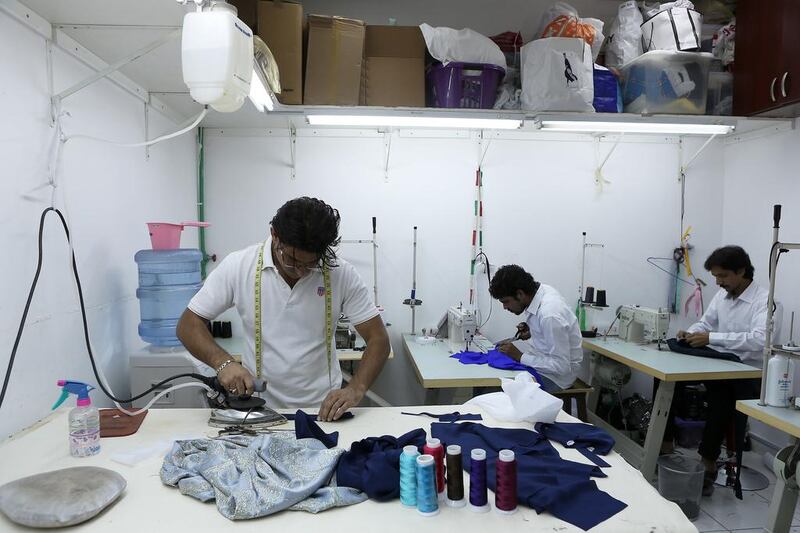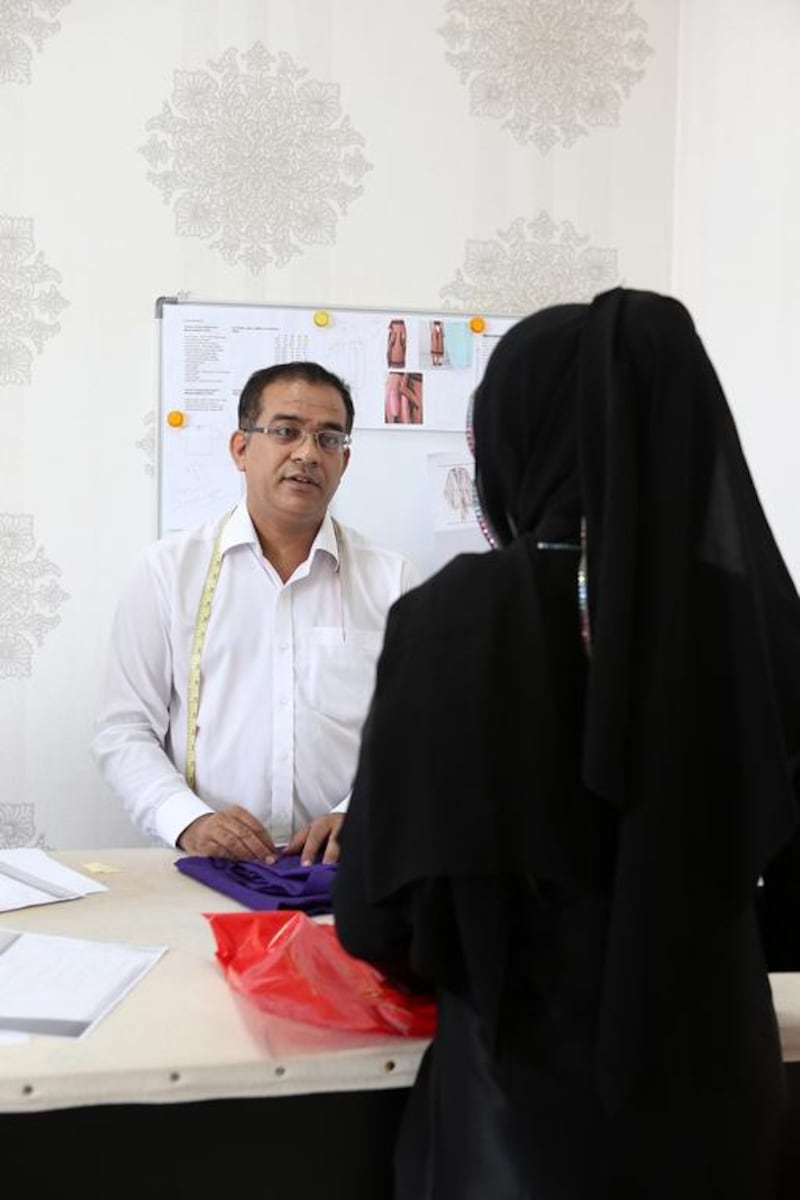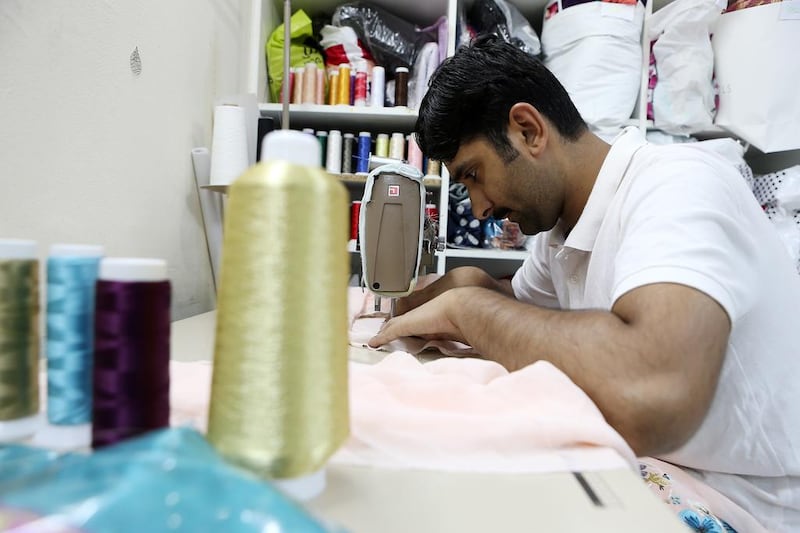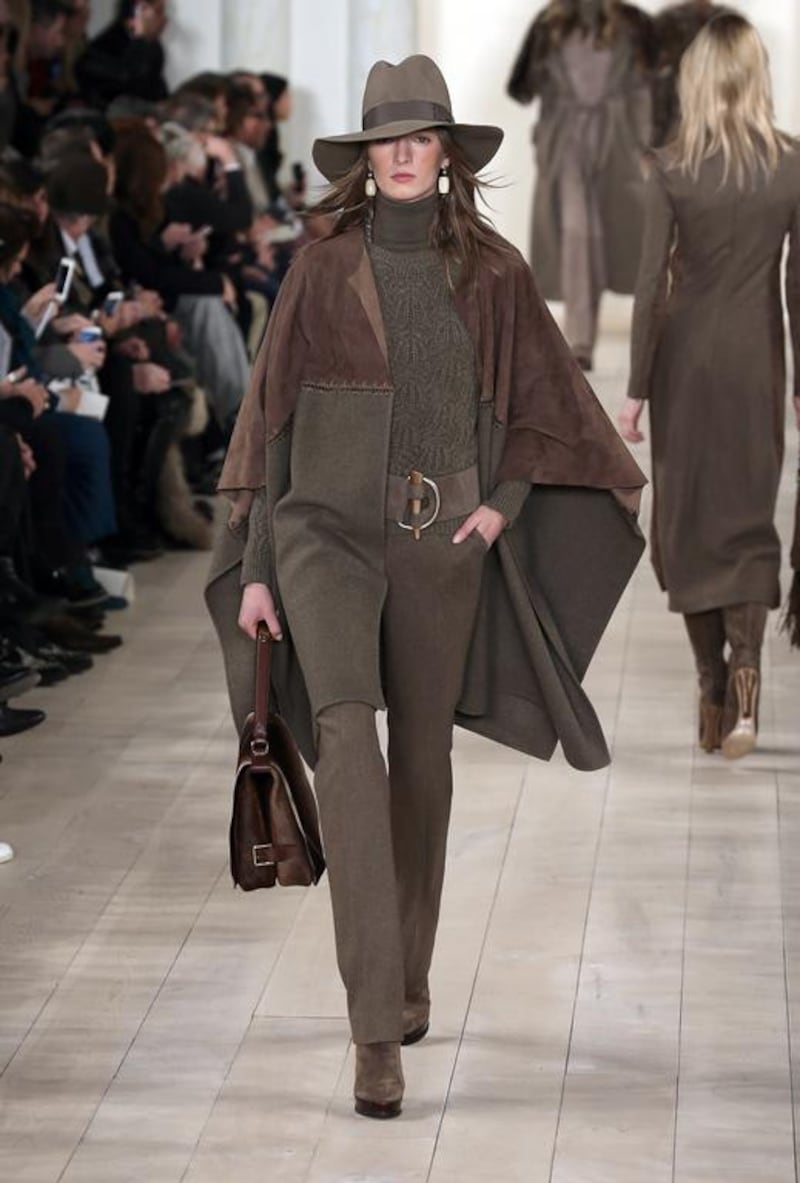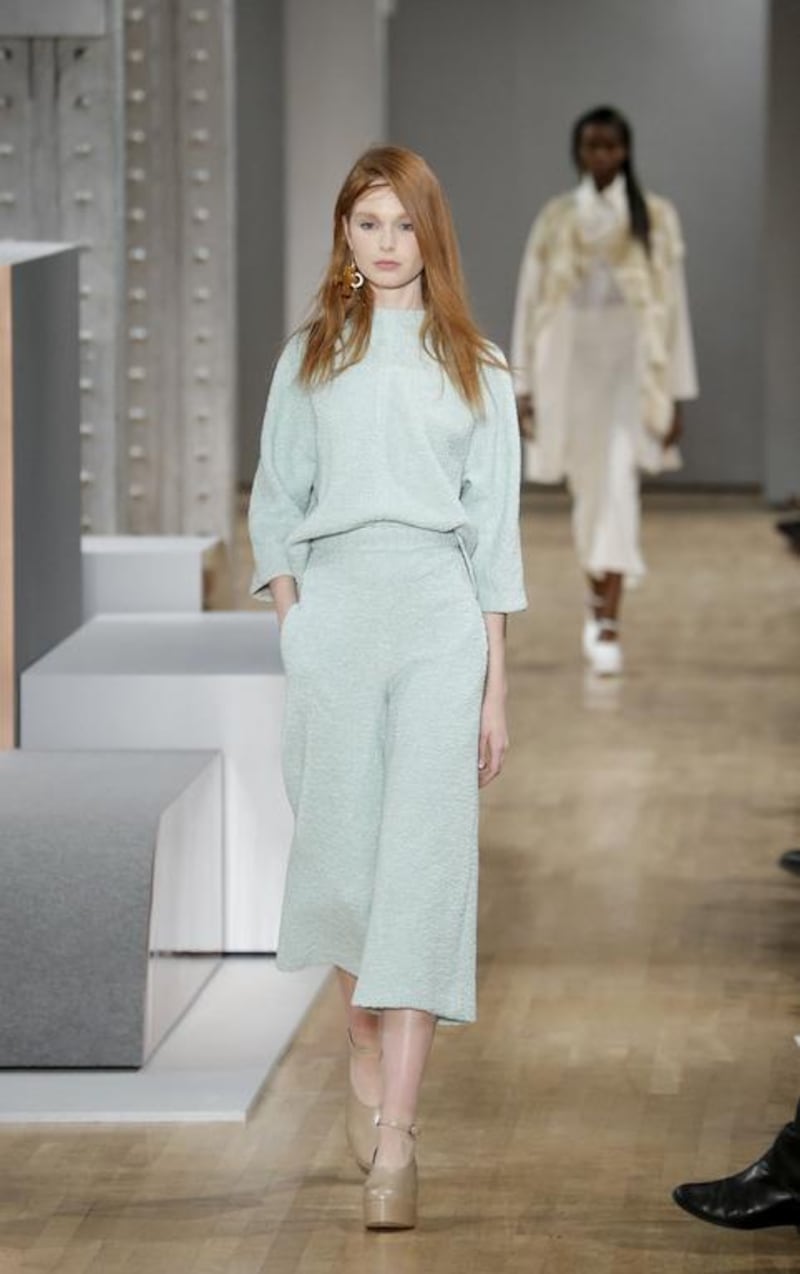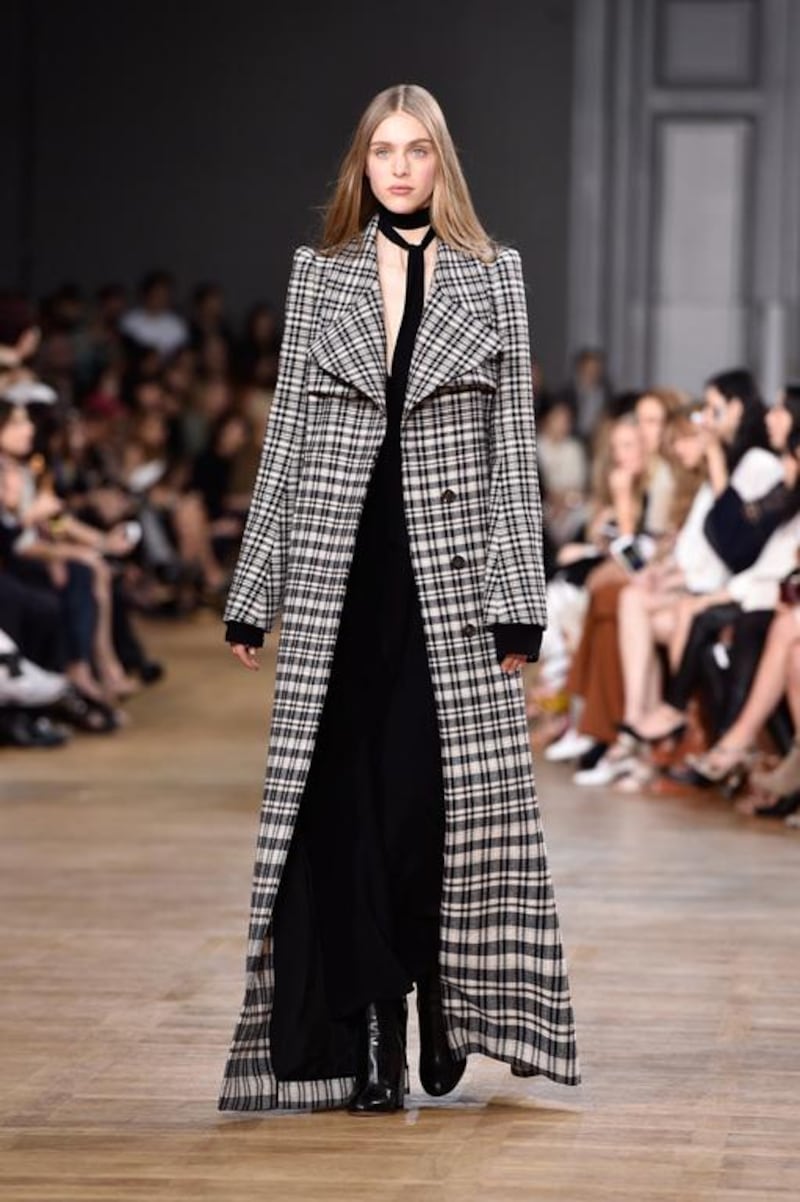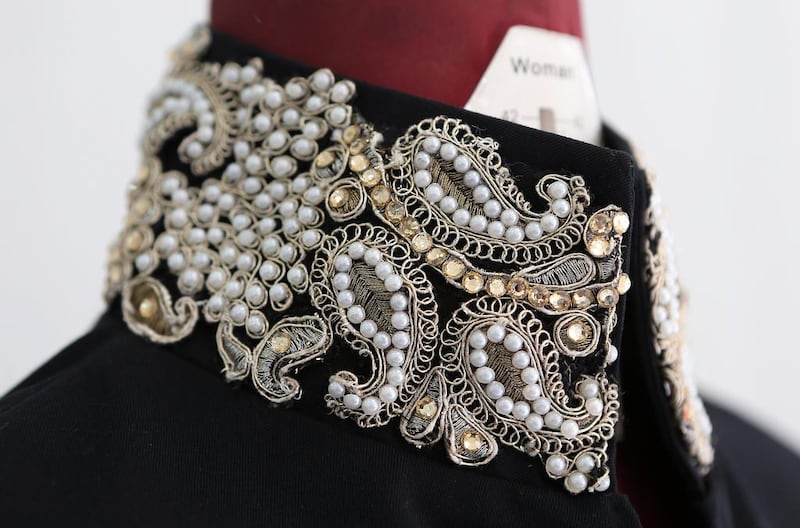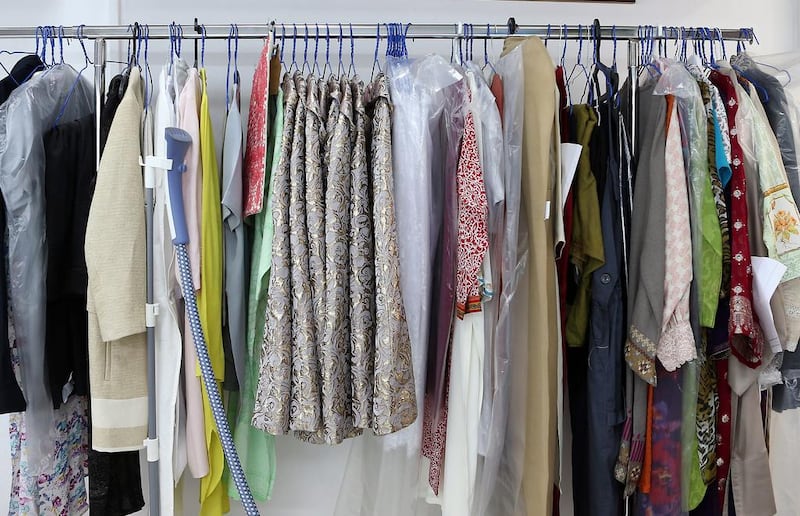You hear it all the time here: “I had it custom-made,” or “My tailor gave me the same thing at a fraction of the price.” Having a surplus of neighbourhood tailors is supposedly a big selling point of living in the UAE, but approaching one can be daunting. Signs sporting flashy Arabic lettering with an icon of a sewing machine atop small corner shops may appear off-putting to some – between the often frustrating language barrier and roaring noise of vintage sewing machines, tailoring shops don’t always make the most inviting of places.
It is sort of a touch-and-go experience – you may end up wasting some money in an exhausting runaround, or you could find a really reliable tailor to make all of your new-season clothing. The process will take some effort on your part, but within a few weeks you could be the owner of a glamorous gown, sweet summer dress or fetchingly fitted blazer, all tailor-made for you. Seems like a risk worth taking, don’t you think?
It’s quite common for women in the UAE to get new dresses made for weddings, parties and proms, especially since the variety available in stores is sometimes lacking when limited by a budget. But dresses aren’t the only things you can have made – the possibilities are endless. Maybe you’ve had your fill of tapered trousers and want some snazzy new palazzo. Perhaps you’ve yet to find the perfect jumpsuit, and would like to have one made to your body’s measurements. Or maybe you’ve been invited to your first Indian wedding and are looking to have your own sari made for the occasion.
If you have one really well-fitting item, you may just want a few more pieces of the same style in different colours or prints – this is the most hassle-free task you can give him, especially if you can provide the tailor with a cookie-cutter-style sample. But, if you’re starting from scratch and are a total tailoring newbie, your instinct will likely tell you to check forums online for reviews and recommendations for fabric stores and tailors. This is a good start. First-hand, tried-and-tested feedback from other UAE residents is invaluable, and can steer you in the right direction.
In the capital, textile stores can be found in and around Madinat Zayed Shopping Centre and Hamdan Centre, while in Dubai, Satwa and Naif Souq in Deira are the most popular areas for material.
There are a couple of things to keep in mind while fabric shopping. Take some time out of your schedule to do this, as material bought in haste might not end up being the best choice for your project, and the last thing you would want to do is go back to the souqs.
While salesmen are obviously motivated to make money, listen to their advice and ask them questions, as they are often quite knowledgeable about the fabric they are selling. Tell them what kind of design you have in mind and hopefully they’ll direct you to textiles that will best suit your garment.
Touch the fabrics, and don’t shy away from draping them around your body to get a feel for how the garment will fall. Hold them up in different lights to examine their true colour – a royal blue satin may look wonderful in store, but at home, it could look like a too-shiny shade of purple.
For gowns and evening dresses, Ali Haider, a tailor working at Abu Dhabi’s Zeena Tailors, recommends buying taffeta – a crisp, silky fabric that holds shapes well. The cost of tailoring a gown at Zeena Tailors ranges between Dh150 and Dh250, while a simpler, more casual dress starts from Dh85. “You will need at least five metres of fabric for a long dress, but maybe more or less depending on the design,” Haider says.
It’s always best to buy a metre or two more than you need, just in case. Your design may also require laces, buttons or embellishments. Sometimes tailors have their own collections of borders and baubles but to avoid any gaudy surprises, it’s best to buy these yourself as you may not like their taste. Most of the time, embellishment outlets can be found near fabric stores, but one of the most popular would have to be Fida, located in Dubai’s Satwa district, while in Abu Dhabi, All Sewn Up is somewhat of a hidden haberdashery gem on Hamdan Street.
When strolling by tailoring shops, take caution before choosing one for your project. Many specialise only in sewing simple kaftans, and aren’t capable of creating anything more complicated. Often tailors have racks besides their cutting tables, displaying newly-made items. If you’re considering a tailor, treat this like his portfolio, and have a look through to see what kind of work he does. If he shows you a stack of books or magazines with designs, it’s no proof of his past expertise – don’t blindly trust his ability to replicate from the runway or red carpet. “A tailor’s interpretation of a design from a picture might not always meet a client’s expectations,” explains Sidrah Zahid, the client relations manager at Thimble, a Dubai-based tailoring shop and production house for up-and-coming designers.
The four-year-old Karama shop is run by the mother-daughter duo Shahida and Sidrah Zahid, who play active roles as liaisons between the customers and tailors throughout the design process. “In a typical tailoring shop, the client deals with the tailors directly as opposed to having someone to communicate with, who is design savvy and in tune with the latest trends. We like to keep long-term relationships with our clients by advising and helping them however we can,” Sidrah says.
It sounds quite fancy, but that doesn’t mean prices are ridiculously hiked up. Costs are kept competitive and relatively reasonable, with shirts ranging from Dh50 and Dh100, dresses starting at Dh80, and gowns and abayas from Dh120. Thimble also offers services such as custom embroidery work and fabric sourcing for customers to save them the journey of venturing out to the souqs themselves. “If a client has a design in mind they would like to try out, we can also create a sample version of the garment to get the perfect cut and finishing before the producing the final piece,” says Sidrah.
While the advantages of Thimble include having a fluent English-speaker to assist with important explanations and requests, not all tailoring shops have this. If you’re trying out a run-of-the-mill tailor located near your home or on your way to work for convenience’s sake, for your first visit, it’s advisable to take an Urdu-or Arabic-speaking friend along, since a language barrier can truly make or break the outcome. You might even be able to bargain a better price with the help of a native-speaking buddy. You’ll need to be as clear and descriptive as you can be, with drawings and images of your vision. If you happen to have a sample of the cut you want to have copied, leave it with the tailor to ensure minimal mistakes.
If you’re blessed with good luck, your whole experience will only require two trips – one to drop off your fabric and explain your design, and the other to pick up the finished piece. If you’re not so lucky, you may need to make multiple trips due to alterations needed or unforeseen delays. Tailors are not always courteous enough to call you if your design won’t be ready on time – you could show up to his shop only to learn that the fabric is still sitting, uncut, in the bag you left it with them in.
Make sure you take the tailor’s mobile number so that you can call him and check up on the status of your project. Depending on the time of the year – Ramadan season and the weeks leading up to Eid are the busiest – tailors often take around one month or more to complete a garment. Thimble, on the other hand, aims to have jobs finished within a week, providing the design is not outrageously complex. “We also accept urgent orders that can be completed within a few hours,” says Sidrah.
So, if you’ve been thinking of getting some clothes tailor-made but just didn’t know where to start, and you don’t want to show up to something in the same outfit as someone else, a custom-made creation could be for you. “A tailor-made garment will always have more exclusivity than something that’s ready-made,” Sidrah says.
hlodi@thenational.ae
